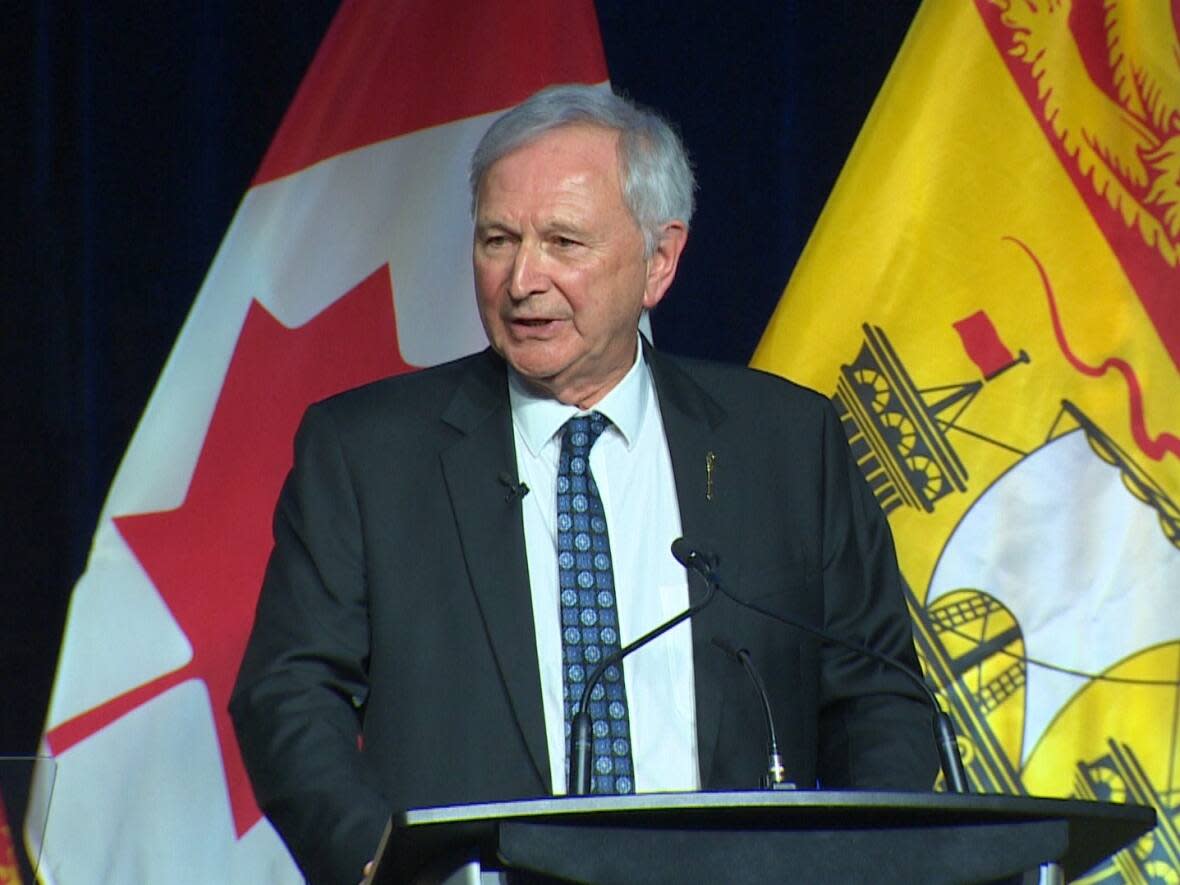Higgs says yes to Ottawa's health funding, says it's time to 'get on with it'

Premier Blaine Higgs says there's no sense in fighting the federal government over health funding any longer and has declared himself ready to accept what Ottawa plans to send to New Brunswick.
It means the province will receive about $1.2 billion a year over the next decade, instead of $1 billion — an increase of $200 million, Higgs told reporters.
That increase falls short of what Higgs and other premiers were hoping for, but the provinces have little leverage to refuse what's on offer.
The premiers "will accept that we've got something here that is far less than what we'd asked for, but we need to move forward," he said.
"There's a need to get on with it, because we've been at this for two and a half years."
New Brunswick spends about $3.6 billion on health care each year. The increase to the Canada Health Transfer will pay for about two additional weeks per year of health care, Higgs said.

"This doesn't begin to reflect the needs in the health-care system."
But he said the limited amount is also a reflection of the fact that money alone won't solve the problems in the system such as staff shortages. He said major changes are also needed.
Provinces will now look for one-on-one bilateral agreements with Ottawa that the Trudeau government has proposed that would involve additional funding in specific areas.
Those bilateral deals would earmark money for areas that each province deems a priority — but the federal government says those must include family health services, health workers and backlogs, mental health and substance use, and modernizing the system.
"I think there's going to be a pretty easy agreement on what type of priorities need to be set," Higgs said.
"The list that was provided would certainly be ones we would all agree to, so I don't think that's going to be difficult at all."
The provinces must also agree to track progress on how the money is being spent and what results it's getting, a commitment Higgs has always been willing to make.
He expects his government will meet with federal Intergovernmental Affairs Minister Dominic LeBlanc next week to work on those deals.
"It'll be very clear in terms of what we land on, what amount goes where and how do we measure what's achieved by that, and are we getting better?" Higgs said.


